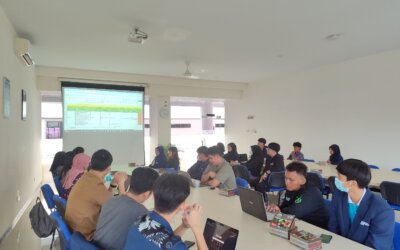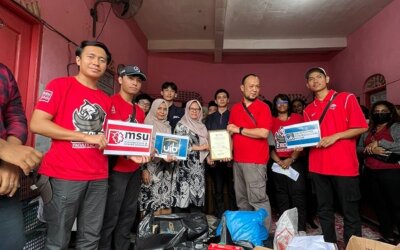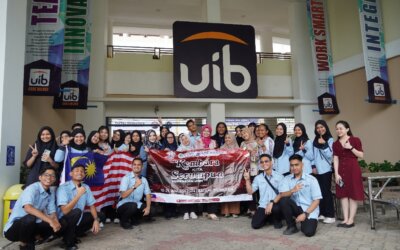The Internal Quality Assurance Institute (LPMI) of Universitas Internasional Batam (UIB) on Wednesday (21/7) held a Webinar on the Alignment of Vision, Mission and Goals (VMTS) in accordance with the Outcome Based Education (OBE) Paradigm. This activity aims to develop VMTS from UIB, so that it can be implemented in accordance with the OBE-based learning system. This webinar invites Dr. Ir. Setyo Pertiwi, M.Agr. from Bogor Agricultural University (IPB) who already has expertise and experience in higher education management. In addition to the resource persons, the participants who took part in this activity were not only from UIB, but also from various institutions from all over Indonesia.
The activity began with an opening by the Vice Rector of UIB, Dr. Meiliana, which then continued with the introduction of the profile of the resource person, Dr. Pertiwi by the moderator, Stivani Suwarlan, S.T., M.T. The webinar continued with the presentation of material by the resource person who opened an explanation of the material with how the changes and dynamics of the higher education system in Indonesia. Dr. Ir. Setyo Pertiwi also explained about the challenges in education in Indonesia and how OBE is present in higher education in Indonesia. He explained that OBE itself is an approach that emphasizes the learning process in an innovative, interactive, and effective manner, so that it must focus more on Learning Outcomes, Backward Curriculum, Alignment between assessments, learning processes, creating a conducive learning environment, and implementing the PPEPP cycle. The resource person also stated that the reason for implementing OBE was to create a more targeted curriculum, graduates that are in line with industry needs, foster transparency in learning and empower students to take more responsibility.
Dr. Ir. Setyo Pertiwi also emphasized that the preparation of curriculum documents must be based on the VMTS in accordance with the institution, not the VMTS in accordance with the curriculum. The vision made must be understandable, desirable, feasible, guiding, motivating and flexible. In addition, the vision must be inspirational, ambitious, realistic, creative, descriptive, clear, and consistent. The determination of the vision and mission must also be realistic. In addition to the vision and mission, goals and objectives must be in line with the vision and mission, the conditions to be achieved by the capabilities possessed and lead to the realization of the mission. Goal setting should also be a measure of achievement and reflect the function of the outcome. All of these insights are, of course, a very important input for the participants of the activity. In the future, UIB will develop VMTS which is surely expected to develop a strategic plan in accordance with the OBE Paradigm in the implementation of Tridharma. In the next session, all insights from Dr. Ir. The Setyo Pertiwi was also immediately implemented and discussed by UIB internal parties to evaluate the VMTS of universities, faculties and study programs.




